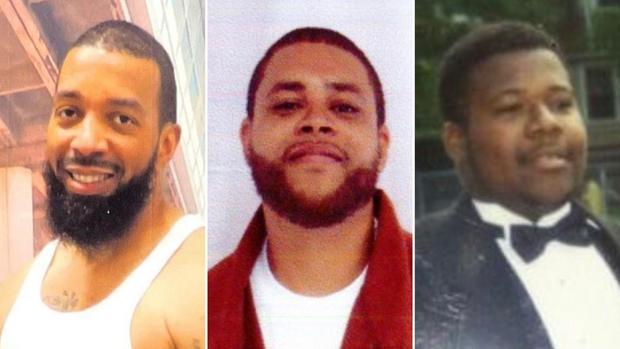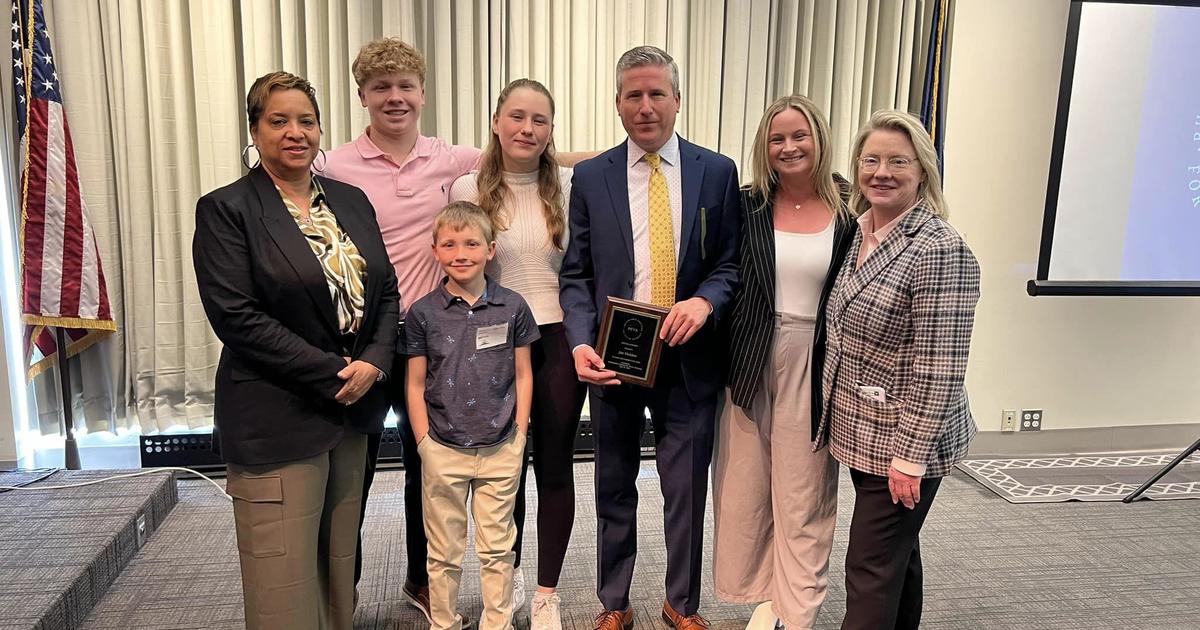New DNA evidence indicates 3 men convicted of murder did not do it, forensics expert testifies
Media, Pennsylvania (CNN) — Newly tested DNA evidence from the 1997 killing of a 70-year-old Pennsylvania woman indicates she was sexually assaulted and fatally beaten by an unknown man – and not by the three men who have spent over two decades behind bars for her murder, a forensics expert testified Tuesday.
Timothy Palmbach, an expert in crime scene reconstruction, testified in a Delaware County, Pennsylvania, courtroom about the new DNA evidence, in particular a mixture of the unknown man's semen, the victim's blood, and urine on her bedsheet. The commingling of those bodily fluids shows that the beating and sex occurred at about the same time, he testified, rebutting a key prosecution argument that they were unrelated.
RELATED: 3 men appeal convictions in 1997 Chester murder of Henrietta Nickens with new DNA evidence
The mixture "fundamentally changes the nature of the crime scene and the conclusion to be drawn from it," Palmbach said in court and wrote in a forensic report.
The testimony came in a hearing for Derrick Chappell, 41, Morton Johnson, 44, and Samuel Grasty, 47, who have spent over two decades behind bars and say they were wrongly convicted. They have petitioned a judge to throw out their convictions and order a new trial based on the new DNA evidence.
Prosecutors have fought to keep the three behind bars and uphold the convictions.
The case stems from the killing of 70-year-old Henrietta Nickens, who died in her home in Chester, Pennsylvania, on October 10, 1997. She had been beaten, and investigators found semen in her rectum and a mysterious green jacket with cocaine in the pocket on top of her TV.
Testing of the semen at the time showed that it was from a male who remains unknown to this day, according to court filings.
The prosecution has argued in court filings there was no evidence the sex was nonconsensual or that this unknown male killed Nickens.
Chappell, Johnson and Grasty were each convicted in separate trials of second-degree murder and other charges in 2000 and 2001 and sentenced to life in prison. The case against them primarily relied on testimony from a key witness, 15-year-old Richard McElwee, who said he acted as lookout while the other three robbed Nickens of $30, according to court records.
In exchange for his testimony, McElwee agreed to plead guilty to third-degree murder and other charges and was sentenced to six to 12 years in 1999, according to court records. CNN has not been able to reach McElwee.
Chappell, Johnson and Grasty have maintained their innocence over the two decades since. The three men are now represented by nonprofit organizations that work to free people they believe are wrongly convicted: Johnson by the Innocence Project, Chappell by the Pennsylvania Innocence Project and Grasty by Centurion. The law firm Shook, Hardy & Bacon, is also providing pro bono legal services for Chappell.
In court Tuesday, family members of the "Chester Trio" gathered to support their loved ones, and spoke to CNN afterward about their hopes for what comes next.
"I just want everyone to know that my heart's been aching for 26 years," said Janet Purnell, Johnson's mother. "Everybody needs to know that my son – they didn't do that. They're innocent. And justice will prevail."
"It felt good just to see (Grasty) smile and wave," said Mahir Sharif, the cousin of both Grasty and Johnson. "I just want to get close to him and punch on him like I used to when I was little."
"I hope that the judge makes the right decision. It's been a long journey for them and me," said Cynthia Chappell, Chappell's mother. "I'm just hoping that everything works out and justice prevails."
Witness also testified at Alex Murdaugh trial
Palmbach's testimony came a month after another defense witness testified about the new DNA evidence as part of this petition.
On cross-exam Tuesday, Delaware County Assistant District Attorney Sara Vanore noted that Palmbach came to his conclusions even though he was not a DNA expert and didn't closely review court testimony.
She argued his testimony might not have made a difference if it had been presented at their initial trials. Vanore also pointed out that Palmbach testified at the high-profile murder trial of Alex Murdaugh in South Carolina on behalf of the defense, and the jury rejected his theory and convicted Murdaugh.
The prosecution called one witness of its own on Tuesday. Jeffrey Fumea, the supervisor of the forensics DNA division of the Pennsylvania State Police, testified that the unknown male's semen has been entered into the CODIS, the US DNA database, but no match has yet been found.
The defendants' petition for a new trial came after new DNA testing, which took place in 2021, further linked evidence from the crime scene to the unknown male and excluded the three defendants, according to Chappell's attorneys.
Modern DNA testing techniques, particularly "touch DNA," revealed that the DNA from the semen matches several other items of crime scene evidence, including more semen on the green jacket and on the bedsheet and items in the jacket's pocket, according to attorneys for the defendants.
However, the prosecution argued that their initial trials did not connect the semen to the defendants, and so these test results did not change the evidence. All three defendants were convicted separately, two by juries and one by a judge.
"The totality of the evidence – including the post-conviction DNA evidence – is just as consistent, if not more consistent, with Ms. Nickens having consensual intercourse prior to the assault as it is with an unknown perpetrator committing both a rape and an assault," prosecutors wrote. "Seventy-year-old people are capable of sexual activity, and like all people, may not always tell their close family members about their sexual partners."




